RobotLAB Blog
Everything You Need To Know About Robotics in Businesses
Why It’s Important to Teach Troubleshooting
By Devin Partida
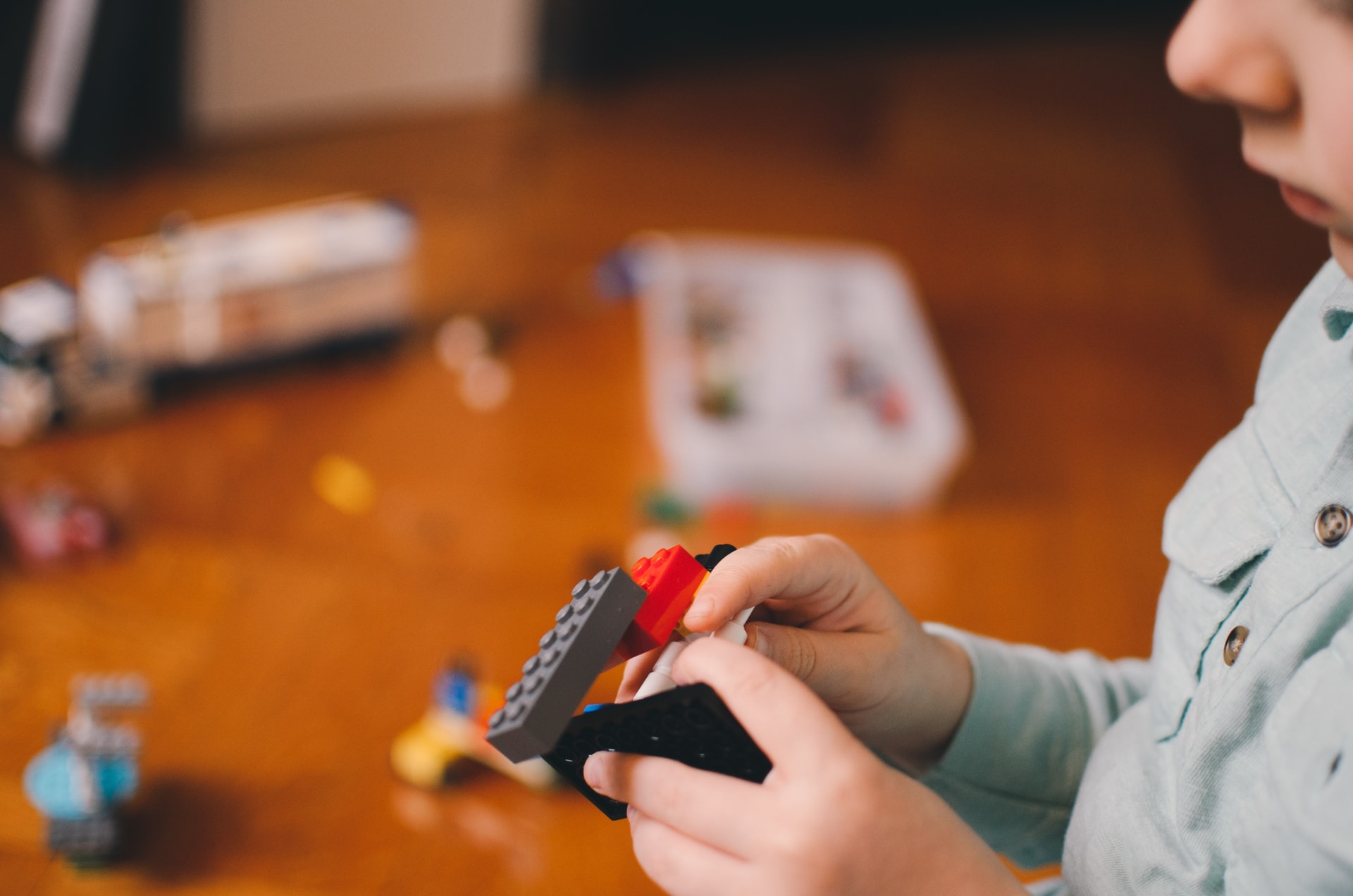 Photo by Kelly Sikkema on Unsplash
Photo by Kelly Sikkema on Unsplash
STEM gets a bad rap. Popular media often typifies computer and math people as emotionless, overly logical, and lacking human warmth.
However, this stereotyped view misses the whole point of what STEM is for and how it operates. STEM courses prepare students to think creatively, develop their curiosity, and build solid troubleshooting skills that make them intelligent and well-rounded individuals.
As a teacher, you already know why you love your field. Sometimes, though, it can be hard to explain why. Here are eight ways STEM benefits students and equips them for real-world challenges.
- 0 Comments
- Oct 27, 2021 10:00:00 AM
- Posted by Maria Alejandra Calcetero
- Topics: Robotics, EdTech, STEM, Education, code, 21st Century Classroom, Special Education, data literacy, Coding, Robots,, students, programming, Technology, VR, Realidad Virtual, STEMchat, Edchat, k12, Virtual Reality, virtual learning, classroom, Literacy, STEM literacy
Guiding Students to Be Independent Problem-Solvers in STEM Classrooms

Photo by Jeswin Thomas on Unsplash
Teaching high school students how to plan to solve a problem in science, technology, engineering, and math is a crucial step.
- 0 Comments
- Oct 26, 2021 10:00:00 AM
- Posted by Maria Alejandra Calcetero
- Topics: Robotics, EdTech, STEM, Education, code, 21st Century Classroom, Special Education, data literacy, Coding, Robots,, students, programming, Technology, VR, Realidad Virtual, STEMchat, Edchat, k12, Virtual Reality, virtual learning, classroom, Literacy, STEM literacy
3 Reasons Virtual STEM is Here To Stay
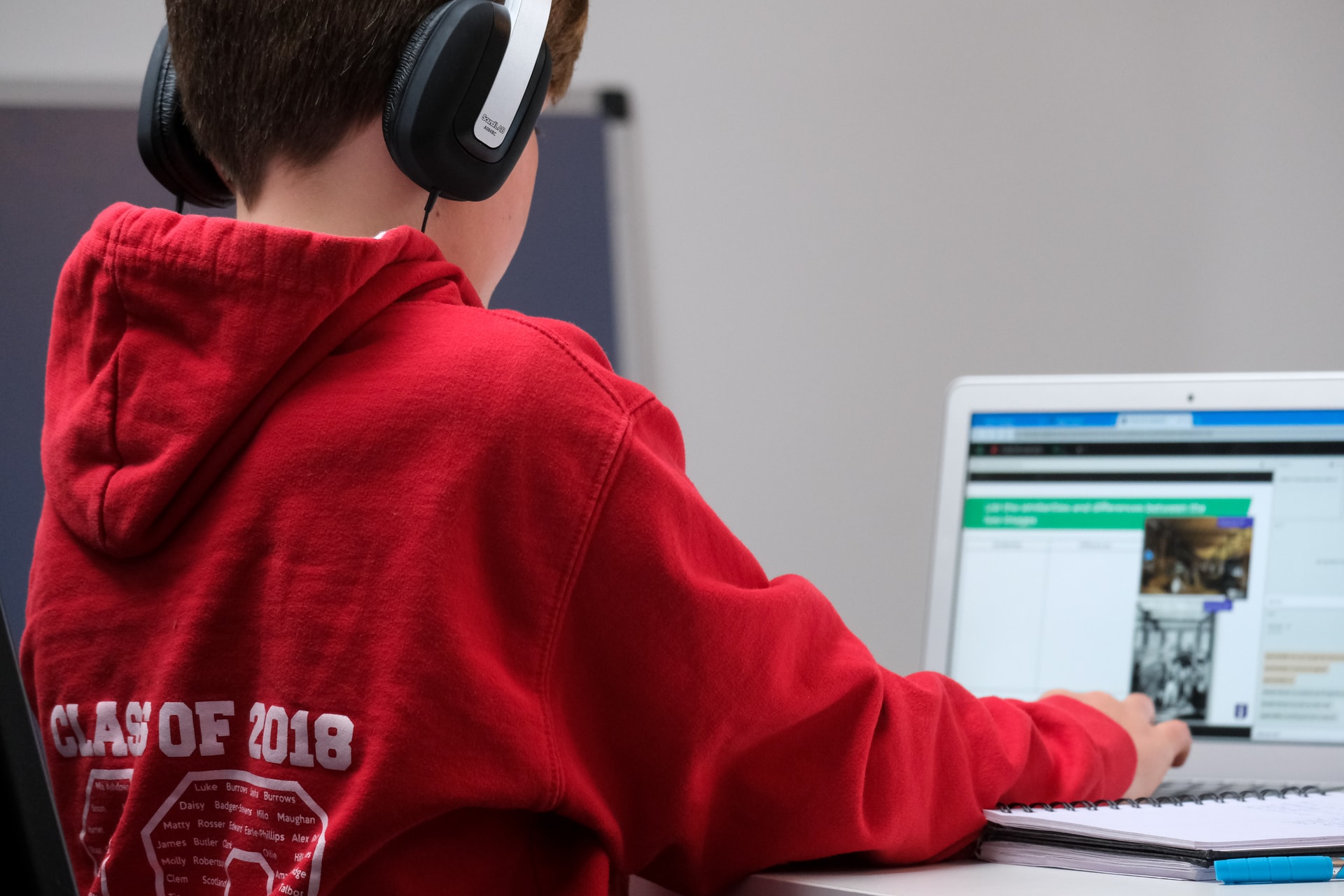 Image source: https://unsplash.com/
Image source: https://unsplash.com/
Virtual STEM offers engaging learning opportunities for students—opportunities that have proved essential during COVID.
- 0 Comments
- Oct 25, 2021 10:00:00 AM
- Posted by Maria Alejandra Calcetero
- Topics: Robotics, EdTech, STEM, Education, code, 21st Century Classroom, Special Education, data literacy, Coding, Robots,, students, programming, Technology, VR, Realidad Virtual, STEMchat, Edchat, k12, Virtual Reality, virtual learning, classroom, Literacy, STEM literacy
5 Reasons Why Coding is Important for Young Minds
By Patria
As a Kindergarten STEM teacher, mom and grandparent, I am consistently empowering myself to keep up with the newest ways to engage my family and students with 21st Century concepts. Recent research puts coding at the forefront of future careers. So, how do we learn and teach our children how to code, and why is this so important? More importantly, how young do we begin teaching our children?
- 0 Comments
- Oct 22, 2021 10:00:00 AM
- Posted by Maria Alejandra Calcetero
- Topics: Robotics, EdTech, STEM, Education, code, 21st Century Classroom, Special Education, data literacy, Coding, Robots,, students, programming, Technology, VR, Realidad Virtual, STEMchat, Edchat, k12, Virtual Reality, virtual learning, classroom, Literacy, STEM literacy
Unlocking the Code for Robotics in the Classroom
Teaching robotics to elementary students can enhance sensory learning, improve socialization, provide opportunities for hands-on innovation, and raise the level of rigor.
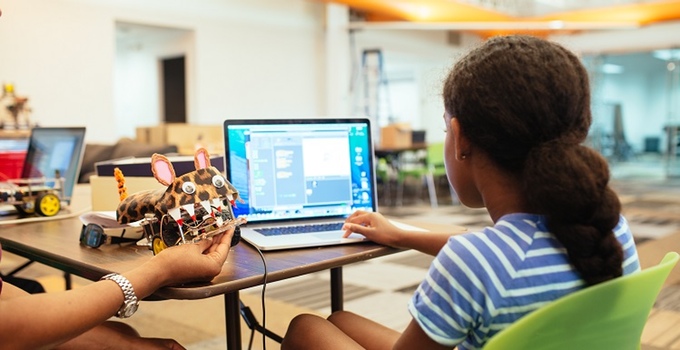
- 0 Comments
- Dec 17, 2019 10:10:00 AM
- Posted by Natalia Galvis
- Topics: Robotics, EdTech, Education, Computer Science, code, Coding, Edchat
Who needs robots in the classroom?
Programming and robotics seem to be the new, hip thing in today’s classroom. STEM concepts are being taught from elementary school, sometimes alongside core topics like English and Math. But why is teaching STEM topics to young kids so popular? How useful could it possibly be? (It’s not like the average person interacts with robots all day)
I’ll take you through my morning just to show you how silly this fad is!
7am
First things first, I got up and brushed my teeth. My toothpaste tube was nearly empty, so I pulled out my phone and ordered a new one on Amazon with one click.

- 0 Comments
- Jan 22, 2018 12:50:24 PM
- Posted by Samantha Baker
- Topics: Robotics, STEM, code, 21st Century Classroom, Coding, Robots,, programming, children, Learning, Digital tools
RobotLAB new learning platform Engage! K-12 won the Best of Show award from Teach & Learning at TCEA 2017!
Engage! K-12 is an interactive and hands-on learning experience organized by eye-catching themes (such as soccer-playing robots or autonomous cars). Students and teachers can access the browser-based learning ecosystem from any device. A user-friendly interface allows teachers, even those with zero programming experience, to bring their lessons to life with virtual or physical robots.
- 1 Comments
- Feb 14, 2017 5:51:29 PM
- Posted by Maria Alejandra Calcetero
- Topics: STEM, NAO, code
Candy Coding!
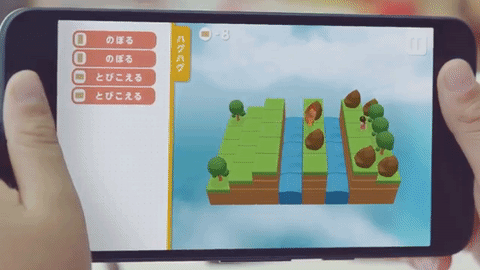
No, not "candy coating", but maybe just as fun. The makers of Pocky, Glico, have made a game app called Glicode that let's kids start coding by arranging the real-life cookies into various patterns and snapping a picture of the arrangement to translate it into in-game commands. The game itself is brightly colored and cute, and the cookies are ready to eat once they've been used - what more could a kid want?
- 0 Comments
- Aug 10, 2016 9:23:57 PM
- Posted by Elad Inbar
- Topics: STEM, code, Coding
Apple's Swift Programming Language Comes To The Playground
Until recently Apple’s icons were a colorful, friendly bunch: like the original classic 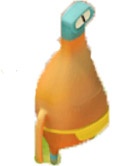 apple logo with a bite out of it; the wonderfully expressive--if silent-- speech bubble. But the latest arrival, Byte the Swift Playgrounds’ hero, while every bit as colorful, is built like the mating result of a hammerhead shark with a pear; it looks like the digital incarnation of a child’s nightmare. Yes, Yes, I know, kids will probably love it!
apple logo with a bite out of it; the wonderfully expressive--if silent-- speech bubble. But the latest arrival, Byte the Swift Playgrounds’ hero, while every bit as colorful, is built like the mating result of a hammerhead shark with a pear; it looks like the digital incarnation of a child’s nightmare. Yes, Yes, I know, kids will probably love it!
- 0 Comments
- Jul 21, 2016 8:37:29 PM
- Posted by Mike Nardine
- Topics: code
Your Robot Chauffeur Has Arrived
We are very pleased to announce today that the NAO robot from Aldebaran Robotics has two new homes: behind the wheel of a BMW Z4 electric car, and exclusively available only from RobotsLAB.
The stylish BMW Z4 is now part of the broad STEM curriculum services available from RobotsLAB as well for developers. The NAO + Car will be offered by RobotsLAB as part of our STEM-U program; a holistic and revolutionary curriculum for STEM subjects from pre-K to higher education that makes use of robots and other visual tools. Under the STEM-U umbrella, we now offer standards-aligned curricula using drones, rovers, robots, Cubelets, 3D printers, and even basketballs. All part of our mission to assist teachers and better engage students using the most innovative tools available to twenty-first century educators.
- 0 Comments
- Sep 8, 2014 3:26:00 PM
- Posted by Anna Sandler
- Topics: Robotics, STEM, Education, Press, Computer Science, NAO, code
Relevant Posts
- Augmented Reality: A Tool for Teaching Students Robot Programming
- Fostering Innovation Through Youth Education in STEM and EdTech
- How Parents Can Foster STEM Learning Beyond the Classroom
- How Robotics Cultivates a Deep Understanding of Mathematics in Students
- RobotLAB Receives EDTech Chronicle 2023 ‘BESTIE’ Award for Landmark Partnership with American Samoa Dept. of Education.
Subscribe to Email Updates
-
I Want To Learn MoreADDITIONAL INFORMATION

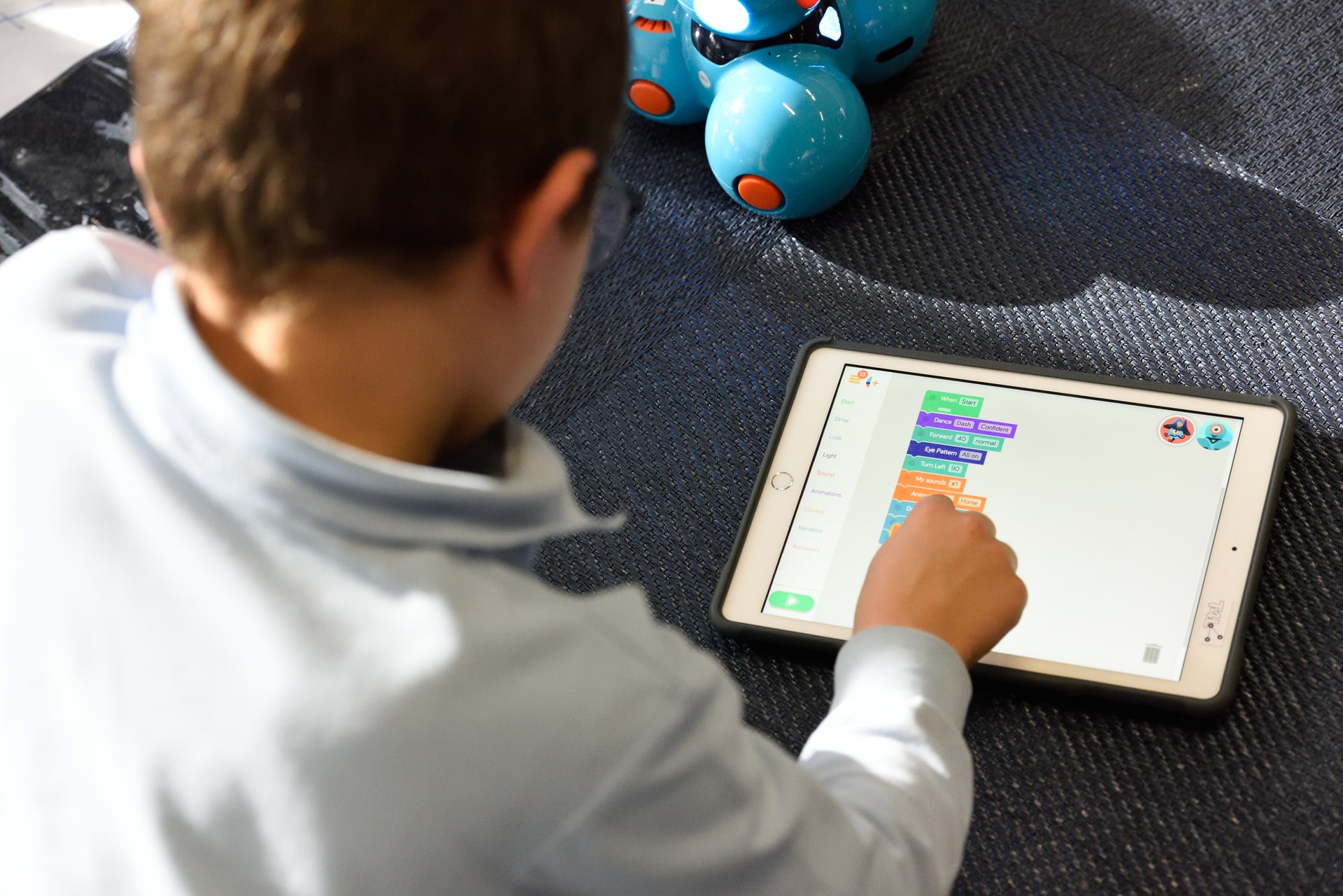 Photo by
Photo by